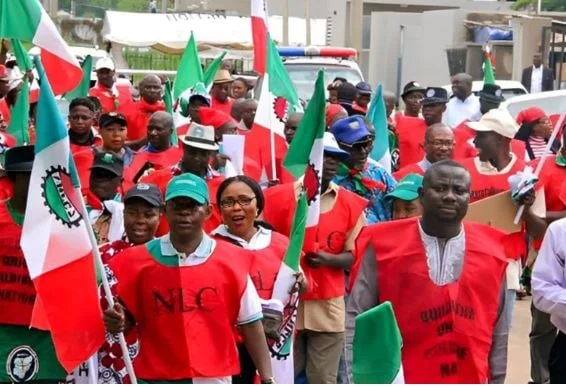The Nigeria Labour Congress (NLC) has directed its affiliate unions to prepare for nationwide industrial action against the Dangote Group, accusing it of anti-worker practices.
NLC President Joe Ajaero issued the directive on September 29, 2025, citing ongoing disputes with the Dangote Refinery.
PENGASSAN Strike Impact
On the same day, a PENGASSAN strike disrupted operations at the Nigerian National Petroleum Company Limited (NNPCL), Nigerian Upstream Petroleum Regulatory Commission (NUPRC), and Nigerian Midstream and Downstream Petroleum Regulatory Authority (NMDPRA). PENGASSAN’s NMDPRA chairman confirmed full compliance, locking out staff and visitors.
Court Intervention
The National Industrial Court in Abuja issued an interim order on September 29, barring PENGASSAN from continuing its strike and halting crude and gas supplies to Dangote’s $20 billion Lekki refinery.
Justice Emmanuel Subilim’s ruling, prompted by Dangote’s lawyer George Ibrahim, aims to protect Nigeria’s economy. The case is set for October 13.
PENGASSAN’s Defiance
PENGASSAN’s General Secretary, Lumumba Okugbawa, claimed no formal notice of the court order, insisting it must come via bailiff, not media.
He urged members to continue the strike, alleging Dangote fired 800 workers for unionizing and replaced them with over 2,000 foreign workers, mostly from India.
Dangote’s Rebuttal
Dangote refuted PENGASSAN’s claims, stating layoffs were part of a safety-driven restructuring, not anti-union moves.
The refinery, employing over 3,000 Nigerians, said only a few were affected due to sabotage concerns.
NLC’s Stance
Ajaero accused Dangote of flouting Nigeria’s labor laws and ILO conventions, calling its facilities “exploitative plantations.” He urged unions to mobilize within 72 hours to enforce workers’ rights to unionize and end intimidation.
Broader Support
The Association of Senior Civil Servants of Nigeria backed PENGASSAN, condemning Dangote’s alleged violations of workers’ rights and demanding reinstatement of dismissed staff.
Why It Matters
The $20 billion refinery is key to reducing Nigeria’s fuel imports. A prolonged strike could disrupt fuel supply, raise prices, and strain the economy.
What’s Next
Government mediators are working to resolve the dispute. The October 13 hearing and union actions will shape Nigeria’s labor and energy landscape in 2025.




















